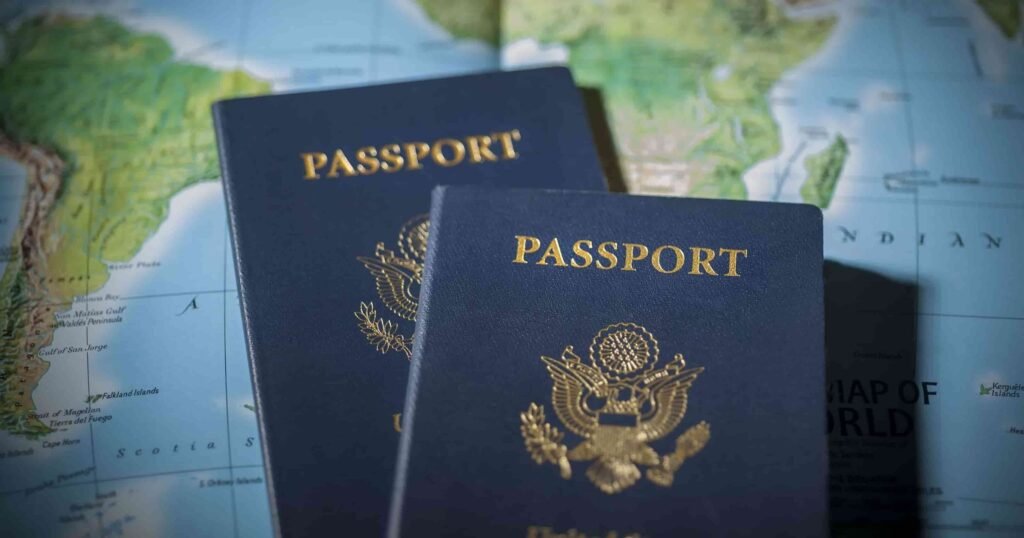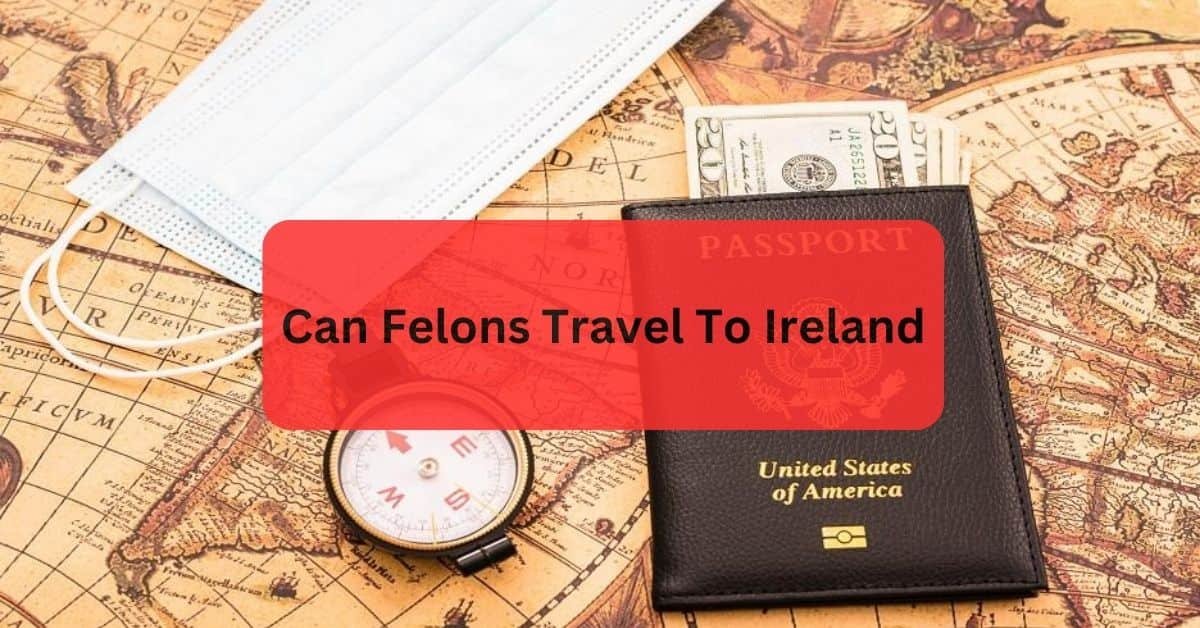Discover the possibility and process for felons to travel to Ireland, turning aspirations into adventures.
“Yes, if you’re a felon from the U.S., you can visit or even live in Ireland, but there are rules to follow. People with a criminal record might face extra checks when they apply for a visa or want to live there.”
Talk to the right people in Ireland, like the government or lawyers, to know precisely what you need to do.
Understanding Travel Restrictions For Felons – Let’s See!
Countries have different rules for people with criminal records when entering their borders. It’s crucial to check the specific regulations of the country you plan to visit before making travel arrangements.
Some places are more lenient, while others have strict requirements or bans. You can avoid any surprises or complications during your trip by doing your research in advance. Always remember to stay informed and be prepared to follow the rules of the country you’re visiting.
Travel Restrictions In Ireland – Here To Know!

Ireland’s Immigration Policies:
Ireland has rules for who can come into the country, even with a criminal past. They look at things like how serious the crime was and how long ago it happened.
Serious crimes or recent ones might make it harder to get in. But if the crime was minor or long ago, it might not be a big deal. They want to keep Ireland safe while being fair to people wishing to visit or live there.
Factors Influencing Entry:
Things that affect whether someone can come into Ireland include the type of crime they committed and how much time has passed since it happened.
It might be harder for them to get in if it was a serious crime or not long ago. But if it was a minor thing or a long time ago, it might not be as big of a deal. Each person’s situation is considered separately to decide if they can enter Ireland.
Nature of the Crime:
The “nature of the crime” means how serious the offense was that someone committed. In Ireland, when they decide if someone can enter the country, they look at what the person did.
If the crime was grave, like violence or theft, it might be harder for them to get permission to enter Ireland. But if the crime was minor, like a small theft or a traffic violation, it might not be as much of a problem. So, the seriousness of the crime plays a big role in whether someone is allowed into Ireland.
Time Since Conviction:
Time since conviction” refers to how long it has been since someone was found guilty of a crime. In Ireland, this is important when deciding if someone can enter the country.
If it has been a short time since the person was convicted, it might make it harder for them to enter Ireland because the authorities might worry they could still be a risk.
But if it has been a long time since the conviction, it is less of a concern because the person may have changed or rehabilitated since then. So, the time since someone was convicted of a crime can influence whether they are allowed to enter Ireland.
Individual Circumstances:

“Individual circumstances” refers to the unique details and situation of each person. It’s about understanding the specific things that make each person different.
In Ireland, when they decide if someone can enter the country, they look at the individual circumstances of that person.
This includes their background, reasons for wanting to enter Ireland, and any exceptional circumstances they might have.
For example, if someone committed a crime but has since shown good behavior or has a legitimate reason for visiting Ireland, those circumstances might be considered. So, instead of just looking at the general rules, they consider each person’s unique situation.
Visa Requirements:
Visa requirements” are the rules and conditions someone must meet to get a visa to enter a country legally. In Ireland, like in many other countries, travelers from certain countries may need to apply for a visa before visiting.
These requirements can vary depending on the traveler’s nationality, the purpose of their visit, and the length of their intended stay.
Read: Are Traveller Batteries Any Good – The Portable Energy Power!
Legal Considerations Of Travel To Ireland – Read It Now!
- Legal considerations refer to the laws and regulations affecting individuals traveling to Ireland with criminal records.
- It involves understanding one’s rights and obligations under Irish immigration laws.
- Consulting with legal experts to comprehend the potential legal implications of traveling to Ireland with a criminal record.
- Being aware of any restrictions or requirements imposed by Irish authorities on individuals with criminal histories.
- Ensuring compliance with Irish immigration laws and regulations to avoid legal issues during travel or residency in Ireland.
Practical Tips For Felons Traveling To Ireland – You Should Know!
Gather Necessary Documentation:
Before traveling to Ireland, felons should ensure they have all required documents, including a valid passport, visa (if necessary), and any legal paperwork related to their criminal record.
Understand Visa Requirements:

Research and understand the visa requirements for travelers from your country to Ireland. Some nationalities may require a visa for entry, while others may be eligible for visa-free travel for a certain period.
Disclose Criminal History if Required:
Be honest about your criminal history on visa applications or any other required documentation if asked. Please disclose this information to avoid complications or even denial of entry.
Seek Legal Advice:
Consider consulting with legal experts specializing in immigration or criminal law to understand the potential legal implications of traveling to Ireland with a criminal record. They can guide you on how to navigate the process effectively.
Plan Ahead:
Plan your trip well in advance to allow time for any necessary paperwork or legal consultations. Last-minute arrangements could increase stress and the likelihood of encountering obstacles during your journey.
Be Prepared for Scrutiny:
Be aware that individuals with criminal records may face additional scrutiny during the immigration process in Ireland. Remain calm and cooperative if questioned, and provide accurate information as requested.
Respect Local Laws and Customs:
Once in Ireland, abide by local laws and customs to avoid further legal issues. Familiarize yourself with Irish laws and regulations to ensure compliance during your stay.
Stay Informed:
Keep updated on any changes to Irish immigration policies or regulations that may affect individuals with criminal records. Staying informed will help you navigate any potential challenges effectively.
Case Studies Or Examples About Travel To Ireland – Check It!

Case studies or examples provide real-life scenarios to illustrate the experiences of felons traveling to Ireland. These stories offer insights into the challenges and successes individuals may encounter when navigating the immigration process with a criminal record.
By sharing specific cases, readers can better understand the practical implications of Ireland’s immigration policies and gain valuable insights into the strategies and approaches that have been effective for others in similar situations.
Case studies or examples make the information more relatable and tangible, helping readers better comprehend the complexities of traveling to Ireland as a felon.
Frequently Asked Questions:
1. Can felons travel to Ireland?
Yes, felons can travel to Ireland, but they may face additional scrutiny during the immigration process.
2. Are there specific restrictions for felons entering Ireland?
Ireland assesses each case individually, considering factors such as the nature of the crime and the time since conviction.
3. Do felons need a visa to enter Ireland?
It depends on their nationality. Some travelers may require a visa, while others may be eligible for visa-free entry.
4. Should felons disclose their criminal history when applying for a visa?
Yes, it’s important to be honest about criminal history on visa applications to avoid complications or denial of entry.
5. What legal considerations should felons be aware of when traveling to Ireland?
Felons should understand their legal rights and obligations and seek advice from legal experts to navigate any potential legal implications.
6. How can felons prepare for travel to Ireland?
They should gather the necessary documentation, understand visa requirements, and plan their trip well in advance.
7. What challenges might felons face when traveling to Ireland?
Felons may encounter difficulties in obtaining a visa, face additional scrutiny during the immigration process, or fail to comply with Irish immigration laws.
8. Are there resources available to assist felons traveling to Ireland?
Individuals can seek guidance from legal experts or organizations specializing in immigration assistance for felons.
9. What should felons do if they encounter issues while traveling to Ireland?
They should remain calm, cooperate with authorities, and seek assistance from legal experts or their country’s embassy.
10. Can felons enjoy their time in Ireland despite their criminal record?
Yes, as long as they abide by the laws and regulations of Ireland, felons can explore and appreciate the beauty and culture of the country like any other visitor.
Conclusion:
Traveling to Ireland with a criminal record presents unique challenges, but with careful planning and understanding of the regulations, it’s possible to navigate the process successfully.
By acknowledging the varying policies of different countries and the specific requirements of Ireland, individuals can better prepare themselves for the journey. Consulting legal experts, gathering necessary documentation, and being transparent about criminal history are essential steps in ensuring a smooth travel experience.
Read:




